Tips for Using Nature Journals with Beginning Writers
Keeping a nature journal is an engaging way for young children to develop early writing skills. Use this collection of tips for using nature journals with beginning writers to encourage your preschool, kindergarten or first grade students to get writing.
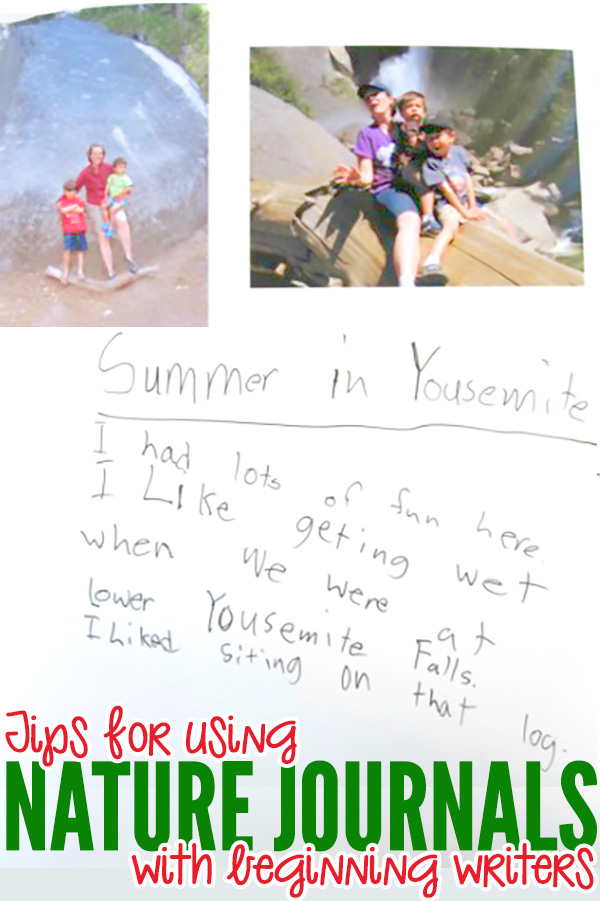
Tips for Using Nature Journals with Beginning Writers
What to Write in an Early Nature Journal
While a traditional nature journal usually focuses on recording discoveries of animals, plants and the like, a child’s early nature journal could be as simple as featuring a few key details about their time spent outside.
When my kids are working on their summer nature journals, they are encouraged to write;
- The date (when)
- Where they went
- What they saw
- What the did, or played
- Who came along
- The weather
- A highlight, favorite moment or something they were proud of, and
- How the experience made them feel.
Of course, new outdoor experiences give your child lots to think and write about so regularly consider new outdoor environments to explore – parks, reserves, forest or bush settings, playgrounds, even zoos, aquariums or a garden nursery.
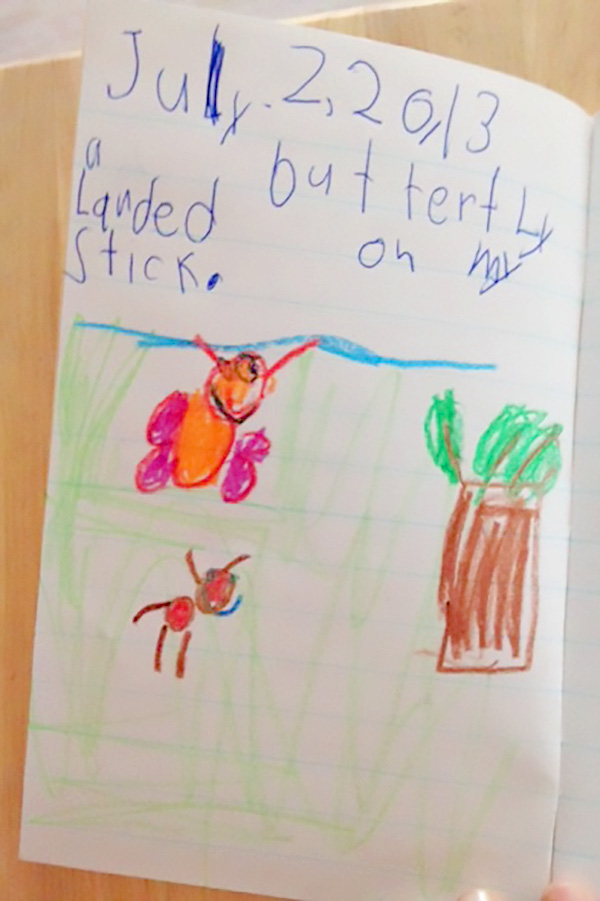
Space for Illustrations
Nature journals usually feature sketches along with written text. For beginning writers, these drawings don’t need to be scientifically accurate. Consider them an opportunity for the child to show how he sees the world around him.
For example, while reading my 5-year-old’s nature journal this summer, I quickly discovered his passion for animals. No matter what activity we were engaged in, he always shared something about a critter, both in words and pictures.
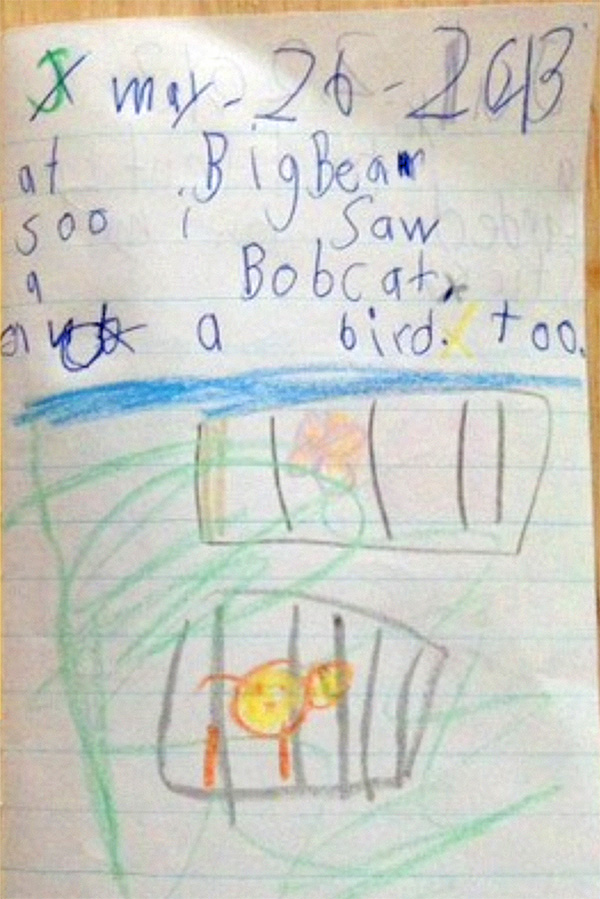
Further tips for encouraging beginning writers with nature journals:
- Keep your expectations age appropriate. For example, my 5 year old usually writes a sentence or two and a picture with each entry. My 8 year old includes more details in both his text and drawings.
- Don’t worry about spelling. Some kids prefer to sound things out and write the letters accordingly. Others may want to copy words from books. Still others may ask for help with spelling. Go with what works for each individual child and their developmental stage.
- Use favorite writing instruments. Crayons, markers, mechanical pencils, fun erasers – get your child excited about journalling.
- Add photos or found objects. After a nature scavenger hunt, for example, you might tape a photo of something your child saw or a feather or leaf he or she found, or after an outing or excursion, photos make a great addition. If your are traveling, purchase postcards for each place you visit for your child to record their reflections onto.
- Encourage your child’s interest in particular areas of nature with a field guide. Check out our suggestions for choosing and using field guides for kids.
- Take your nature journal with you. Writing on location can be an even more engaging way to get children writing authentically.
- Make it interesting. Sometimes take along a magnifying glass along for a closer look at the world, or a pair of binoculars. A printable outdoor scavenger hunt can also be a fun way to engage with nature.
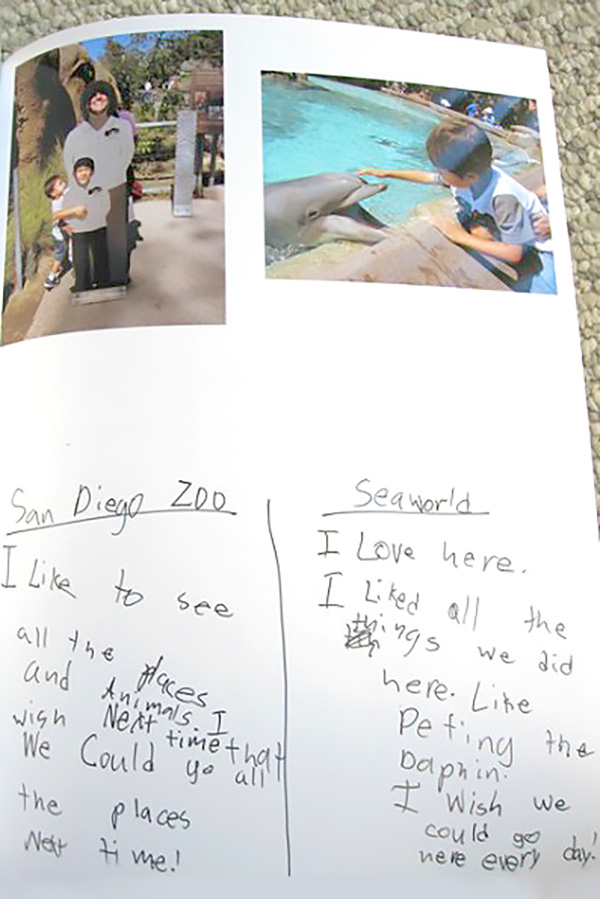
Most importantly, remember, there’s no right or wrong way to keep a nature journal, so let your child do whatever feels best.

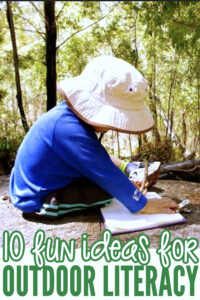
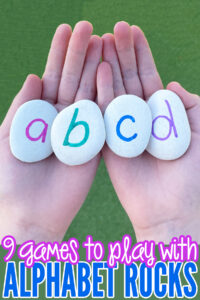
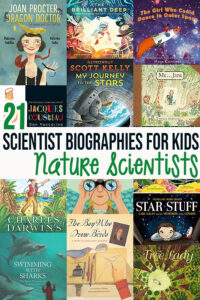
It happens to be a great way to incorporate inventive spelling. I recently had an experience with realizing what a crazy language English is. I had an adult relative here from Israel and he wanted to learn some English. I started by printing out the ABC and going from there. He was picking it up nicely until he started finding words like laugh….how to explain? My students who used to do inventive spelling would just write Laf…
Couldn’t agree more, Faigie! English is a very challenging language to learn. I find I am constantly learning new things now that I have two kids working on their language & writing skills. 🙂